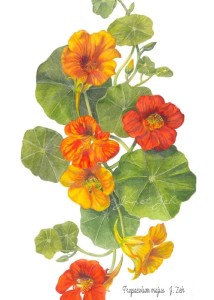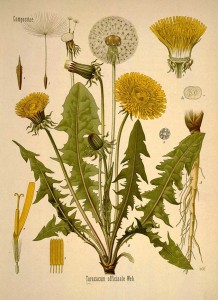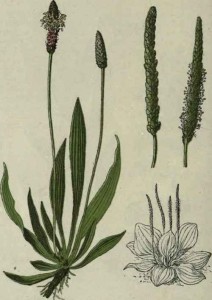We all know internal health and digestion play a large role in skin health. Digestion and assimiliation of nutrients are often related to how and what we consume. Food choices can be reflected through the skin. Choosing foods that are high in vitamins, minerals, antioxidants and fibre can help to improve skin health. We all know that growing our own veges is a sure way to increase the nutrient level. Have you ever thought however, about eating the weeds from the garden too?
In todays society it is more common to buy food from the store than collect it from nature. However there are many benefits to adding some wild plants into your diet. Weeds contain high amounts of vitamins and minerals and add diversification to our diet.
Our not too distant ancestors ate a much larger variety of food giving them access to many nutrients. Wild plants provide a different set of nutrients to conventinal produce. Eating wild foods nourishes us and connects to the land.
Here are three of the most common and easily identifiable edible weeds that are beaming with medicinal properties:
Nasturtium flower:
This common weed grows in abundance. It is part of the mustard green family and has a similar peppery taste to watercress. The leaves are a fantastic for blood and lymphatic system purification. The leaves are also known for stimulating appetite.
The beautiful, round, bright green leaves can be included in pestos and soups for a hot zing of flavour and nutrients, the vibrant red, orange and yellow flowers are also edible and can be used to garnish salads and cakes!
Dandelion:
Dandelion is also an extremely abundant herb that is probably in your backyard as you read this. Before mowing the lawn, gather up the dandelion leaves and flowers as they are ultra medicinal.
The leaves are bitter which stimulates saliva release to create enzymes to help with digestion. They are also known to be blood purifiers and are an excellent contribution to pestos, salads and smoothies for a touch of wilderness.
There are few weeds that look similar to dandelion so always be sure that it has a hollow stem and that the leaves are hairless!
Ribwort Plantain:
This resilient little weed grows like crazy. It is known to be beneficial for respiratory conditions such a bronchitis and coughs. It is high in vitamins C, E and K as well as being high in plant protein and iron. I love this in soups, as a salad garnish or steeping a handful of leaves in hot water with liquorice root and fennel for a medicinal tea to ease winter ailments.
*When foraging for your edible weeds always make sure the area has not been sprayed. Choose not to pick from sides of roads or public areas as we never know the state of the soil and it is likely dogs have been doing their business- your back lawn. Community gardens or the untouched forest is best! Always be certain that is the indeed the correct edible weed you are about to pick, if in doubt do not eat, ask a wise old soul or do some research!
Tori Abrahams- Townsend from The Raw Kitchen


